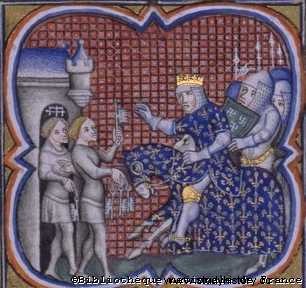The first governments
Abolition of Privileges
The storming of the Bastille, on July 14, 1789, had put an end to the royal authority, very quickly the revolutionary gear was put in place. The devastation of castles throughout France was a valid pretext to suppress feudalism. On this night of August 4, the deputies of the Constituent Assembly abolished the tithe, the salt tax, the right to hunt as well as all the privileges of the Old Regime. These principles were immortalized by the “Declaration of the rights of man and of the citizen”:separation of powers, religious freedom, equality in law, but this declaration retained the inviolable character of private property. However, universal suffrage is not enforced, gender equality is not respected, and other principles of equality were not implemented in the constitution.
The Constitution of 1791
The Assembly of Deputies of 1789 now finds itself the role of Constituent Assembly, it must draw up a new constitution for France and continue the implementation of reforms. In 1791, the Constitution was definitively drawn up. Louis XVI retained executive power but lost his title of King of France in favor of that of King of the French. He is the head of the armies, appoints the senior civil servants and his ministers, he signs the treaties but he can only declare war with the agreement of the Assembly. This assembly holds the legislative power. But this first constitution turns out to be clumsy in many areas, and the Assembly has no power over the executive and vice versa, so there is no coordination between the two movements. Only active citizens (paying a direct tax equal to three working days) are invited to elect delegates (paying a tax for ten working days) who will vote for deputies.
http://www.historyback.com/en/world/europe/1001018688.html
- Alexander the Great:What did Darius offer him in order not to defeat him
- Would the Olympic games have the same glamor without television?
- Conversions of the charismatic zombie in American media
- The adventurous story of the Gorch Fock (I)
